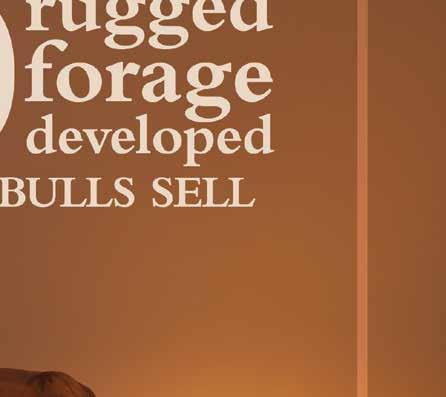
5 minute read
Teamwork Pays When Selling Farmland, Realtor Says
Teamwork Pays When Selling Farmland, Realtor Says by Jeff Gaye
You have farmland to sell. What do you need to know, and where do you start?
Advertisement
Harry Sheppard owner of Sheppard Realty, a real estate brokerage with a strong focus on agricultural land transactions, has been assisting clients with buying and selling Saskatchewan farms for the past 10 years. When it comes to selling, he says most land sales are triggered by one of the “three Ds”— debt, divorce, or the date on the calendar. Other reasons include estate sales/passing of a loved one, division of assets, or “just time to retire”.
According to Sheppard, there are three important components to getting the most from a land sale.
First of all, a good real estate agent will help you get the best price for your land.
“Raising the most money, that’s where I come in,” he said. “I’m here to create the cash, to get the highest amount of money possible for our Seller clients.”
There are also important tax considerations, and a seller has to plan for what they will do with the proceeds of the sale. At least some of this planning should be done before you put up the For Sale sign.
A realtor is a third-party professional who will represent you, as a seller, in negotiating the best price for your land and the best terms and conditions for the sale.
“It’s the buyer’s hard-earned money and the seller’s valuable land that’s being transacted,” Sheppard said. “We are undertaking as the seller’s agent to market the property on behalf of the seller. We take all of our instructions directly from our sellers. We don’t make any decisions in terms of price, they’re in full control.” When you’re looking for a realtor, Sheppard says the first thing is to find someone with experience in the profession. This may seem obvious, but Sheppard says farmland sales are usually a one-time thing for landowners, and the guidance of an experienced agent can make a big difference to what you earn— and what you keep—from the sale.
“Most sellers have never sold land,” he said. “Typically they’ve been acquiring a land base over the years, and all of a sudden they’re faced with the time to sell it.”
Many will find an agent based on a referral from someone they know; others will start searching the internet. Both are good ways to start looking. continued on page 28
Farm & Ranch Real Estate. It’s what we do.
Thinking of buying or selling farm or ranch land? Put our family team to work for you. We truly understand rural real estate, and are committed to helping our clients buy or sell with confidence and ease. NOW SELLING
HEUSTON RANCH 8,293 ACRES ROCKGLEN, SK AREA
• Many acres of land for grain production, grazing, and hay production • Two modern ranch-style houses • Abundance of well and spring water • Newly-constructed hay shelter • Heated workshop • Machinery storage • Corrals and livestock handling buildings with calving barns
Visit us online for full listing details.
Teamwork Pays cont. from pg. 26 In addition to personal referrals, Sheppard says to look at the testimonials on a realtor’s website.
Under normal circumstances, visiting an agriculture trade show can be another great way to sound out agents and find the right fit. Pandemic precautions will probably have an effect on those opportunities, but Sheppard says to watch for them.
“Trade shows are a really good source,” he said. “You can walk around. At any given trade show there’s going to be half a dozen or so, a nice selection of farmland real estate companies promoting themselves.”
Trade shows offer sellers the opportunity to speak face-to-face with agents and ask questions before deciding to commit to a realtor so that you know exactly what they will do to best market your land.
Before you sell, there are the tax implications to consider. A realtor can help to advise you on this front, but your best advice will come from an accountant who specializes in tax and/or a good tax lawyer. Depending on the type of transaction, Sheppard said good legal advice can be worth a lot of money to you. “There’s more legal and accounting fees. But usually the net effect is, it’s better for the sellers,” Sheppard said.
For example, many family farms are incorporated. When you sell, what are you selling—the land itself, or the shares of the corporation that owns it? These are topics that need to be discussed and thought through in order to get the best possible outcome.
He says it is important to do your due diligence on the current capital-gains tax regulations and how they will affect you if you decide to sell your land.
If you intend to replace your land—if you sell a few quarters to buy land elsewhere—you may be able to avoid some capital gains tax. Sheppard says this is another reason why it’s important to have a good tax lawyer on your team. And whether you are replacing land or retiring, you need to plan how to invest your sale proceeds.
“What do you do with it? You know, are you going to just sit it in the piggy bank? Are you going to put it into GICs? Or are you going to reinvest it into other farmland, or invest in the stock market?” Sheppard said.
“This is where some folks stall out. They actually get paralysis, they actually stop the whole process because they’re afraid they’re not going to be able to invest well.
“Having conversations with good financial planners and professionals that can help to come up with a really good, wellbalanced plan for what to do with the money the day it arrives in the account after the sale is very important.”
Most landowners already have a lawyer, an accountant, and a financial planner on their team. If they need someone with more specialized knowledge, a realtor can help with referrals. B
Box 4752 Regina, SK S4P 3Y4 (306) 757-8523 (306) 569-8799 Fax www.skstockgrowers.com


Have that “hard to buy for” friend or relative? Gift them with a subscription to Beef Business.
1 Year ..... $26.25 (GST incl) 2 Year ..... $47.25 (GST incl) 3 Year ..... $68.25 (GST incl)
You have received a ___ year subscription to Beef Business.














